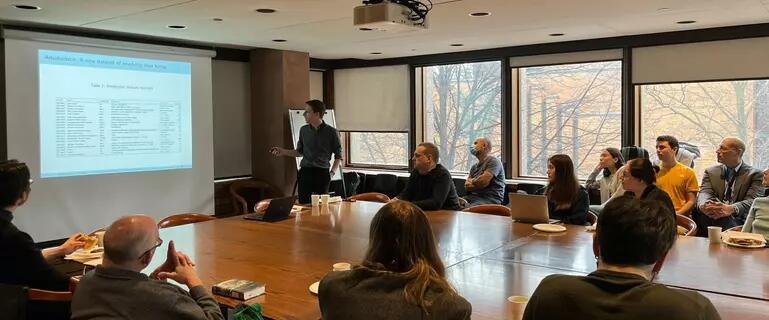
Event Report: Who benefits from the revolving door? Evidence from Japan
On February 12th, 2024, Trevor Incerti, assistant professor of political science at the University of Amsterdam, delivered a presentation on the relationship between political influence and the employment patterns of former bureaucrats.
Professor Incerti began by describing the difficulty of examining whether and how bureaucrats influence policy once they are outside of government. This is a longstanding question in both Japanese politics and the study of other countries. He then introduced a new dataset, which traces the post-retirement positions of Japanese bureaucrats. The dataset was named “Amakudata” after Amakudari, or “descent from heaven,” a Japanese term to describe the attractive private-sector positions bureaucrats tend to assume after retirement.
Incerti introduced a variety of novel insights based on this data. Using several statistical techniques, he visualized and analysed the flow of bureaucrats from government to industry as well as the potential impact retired bureaucrats have on government programs. For example, using stock prices and an interrupted time series approach, he showed that announcements of Amakudari appointments in Japan are associated with a boost to stock market performance. The data also suggested that Amakudari may influence the size of government contracts and loans.
Incerti raised several additional research questions his dataset could be useful for, such as the rise of “zombie” firms in Japan and how nonprofit organizations may benefit differently from Amakudari. There was a lively question-and-answer period from the audience after the presentation. Questions covered topics such as the impact of political reforms in Japan, which have sought to limit post-retirement opportunities for bureaucrats, potential confounding variables, and causal mechanisms.
We would like to thank Professor Incerti for his insightful presentation, as well as the audience in attendance for an engaged Q&A session.

